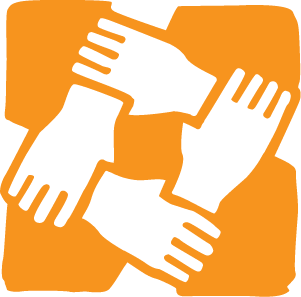 As a new co-op project progresses through the 3 stages of the development process and the workload and complexity of the co-op development process increases, founding team and board members often wonder when to hire help, and for what roles.
As a new co-op project progresses through the 3 stages of the development process and the workload and complexity of the co-op development process increases, founding team and board members often wonder when to hire help, and for what roles.
Though the size, skills and situation of each startup group vary, there are points along the 4 Cornerstones in 3 Stages development model where hiring (or contracting) for paid assistance can be essential to eventual success. Keep in mind, however, that your co-op’s timeline for bringing on paid help, and the specific outcomes and expectations for that help, will vary depending on the abilities and effectiveness of your organization, including the board, founding team or steering committee, and other committees. The “BE A GREAT EMPLOYER” section later in this Field Guide provides some guidance and resources that can be used to judge your group’s preparedness for hiring or contracting.
This Field Guide is designed to provide assistance in deciding which roles may be most helpful at which points in your development. First we will identify the positions most commonly hired by startup groups. Then we will discuss some important things to keep in mind when a group of people hire and /or oversee individuals working for the co-op.
NOTE: This guide is an overview and is not meant to include a complete summary of all the steps and considerations. For example the difference between an employee and a contract worker has legal and tax implications. Having employees requires having clear and robust systems of accountable empowerment, record keeping, tax withholding, benefits, and complying with employment law. This guide does not attempt to cover all of those aspects and care should be taken.
PRIMARY ROLES
Outreach Coordinator
As a group moves from Stage 1, Organizing, to Stage 2, Feasibility and Planning, the workload increases and changes focus. A market study and pro forma financials are commissioned and initial site search is begun, and a board may need to concentrate on overseeing the feasibility assessment process and bring on an Outreach Coordinator to continue the important work of community outreach and communications. The primary roles of the Outreach Coordinator are to plan, oversee and increase communication and membership growth. The person in this role may also be responsible for recruiting, training and coordinating volunteers.
With incorporation, there is a legal structure for the co-op to be an employer or contractor, and with 200 to 300 members there should be some money in the bank to pay for this role. This position usually starts as part time at 10 – 20 hours per week, and is often contracted rather than hired, as that is a simpler way to secure support at this
stage. This role may continue and evolve through store opening and beyond. (See note above. Be sure to understand the legal and administrative differences between hiring staff and contract workers.)
This position is a type of community organizing and requires energy, organization and good communication skills. Candidates may already be a part of your group or may be sought through the co-op’s online presence, Craigslist, other online job listings and word-of-mouth.
Business Development Project Manager
Some boards choose to hire or contract a person or organization to oversee business development while they concentrate on other aspects of the project such as vision, governance, outreach and fundraising. This role may include:
- Feasibility assessment,
- Site selection,
- Negotiation with potential lenders, landlords and/or property owners,
- Initial store design,
- Membership growth,
- Fundraising and promotions, and
- General Manager search and recommendations.
- If a co-op has a Project manager, the Outreach Coordinator duties may be a part of the scope of work or it may be a separate position. While there are some similarities, there are also differences in the skill sets needed for each type of work.
The Project Manager role is typically 20-40 hours per week, requires higher skills and cost than the Outreach Coordinator, and would often begin in stage 2a. This position may continue until a GM is hired, at which point the GM will decide whether to continue this position or not.
Construction Project Manager
This contract position comes on board in stage 3a as the store design and contracting are finalized. This person may serve as a liaison between the board, architect, store designer, general contractor and other construction professionals and will oversee all aspects of demolition, site preparation and construction. In some cases, a General Manager with experience in store build-outs can serve as the Construction Project Manager. Depending on the size and complexity of the project, this position may end when primary construction is complete or may continue until the final construction punch-list is nearing completion.
General Manager
This is the million dollar role: a person who can lead your co-op to make a million dollars or lose that much. There are many resources available to assist you in hiring the best General Manager possible, including consultants who specialize in helping co-ops make the best hires possible. The process of hiring a General Manager can begin in Stage 2b with the start-date occurring when most of the co-op financing is committed or in place. Ideally your General Manager should be hired as much as a year before your projected opening, so he or she can be an integral part of the store design and buildout.
Other Roles
During your co-op’s development there will be a number of other tasks to be fulfilled, including performing a market study, preparing pro forma financial statements, store design, architecture, engineering and interior design. These are all very specialized tasks that should be contracted to professionals with grocery co-op experience.
BE A GREAT EMPLOYER
To build successful relationships with staff and contractors a board must first achieve a positive functioning level itself. Some steps to doing that include:
- Studying and using a tested model for cooperative development, specifically the 4 in 3 Food Co-op Development model,
- Investing time, effort and funds in learning about and using Cooperative Governance,
- Understanding the board’s role in the co-op and committing to clear and documented empowerment and accountability,
- Adopting policies/working agreements using the Policy Template for Startups,
- Committing to an ongoing pattern of frank board self-assessment, training and improvement.
Other factors that can contribute to effective board and staff/contractor relationships include:
- Committing to speak with one voice and using a designated representative as the primary contact with each employee and contractor,
- Being very clear and realistic in the expected outcomes for staff and contractors using good documentation including job descriptions or contractor agreements,
- Fostering a supportive and creative workplace environment with open communication.
ADDITIONAL RESOURCES
Hiring a General Manager Toolbox
Construction Project Manager Job description (doc)
Project Management – By: Denise Chevalier, Columinate
Hiring Your First General Manager – By: Carolee Colter, Columinate
Have more questions?
Get in touch with one of our consultants.

